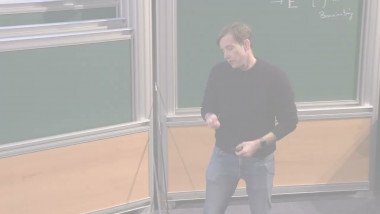
On the Wave Turbulence Theory of 2D Gravity Water Waves
De Alexandru Ionescu

Anomalous Diffusivity and Regularity for Random Incompressible Flows
De Scott Armstrong
De Jean Bertoin
Apparaît dans la collection : Random trees and maps: probabilistic and combinatorial aspects / Arbres et cartes aléatoires : aspects probabilistes et combinatoires
This talk is based on a work jointly with Timothy Budd (Copenhagen), Nicolas Curien (Orsay) and Igor Kortchemski (Ecole Polytechnique). Consider a self-similar Markov process $X$ on $[0,\infty)$ which converges at infinity a.s. We interpret $X(t)$ as the size of a typical cell at time $t$, and each negative jump as a birth event. More precisely, if ${\Delta}X(s) = -y < 0$, then $s$ is the birth at time of a daughter cell with size $y$ which then evolves independently and according to the same dynamics. In turn, daughter cells give birth to granddaughter cells each time they make a negative jump, and so on. The genealogical structure of the cell population can be described in terms of a branching random walk, and this gives rise to remarkable martingales. We analyze traces of these mar- tingales in physical time, and point at some applications for self-similar growth-fragmentation processes and for planar random maps.
